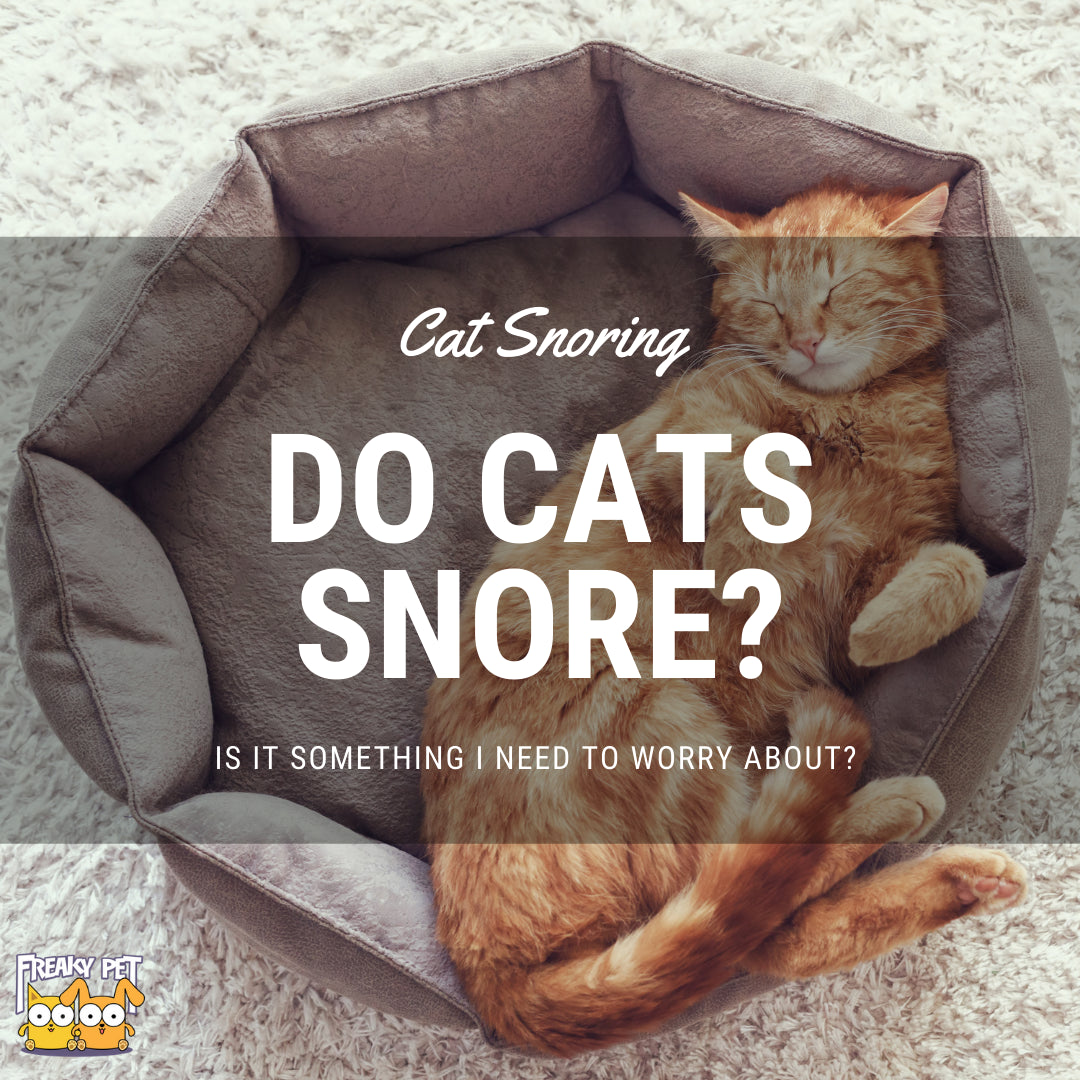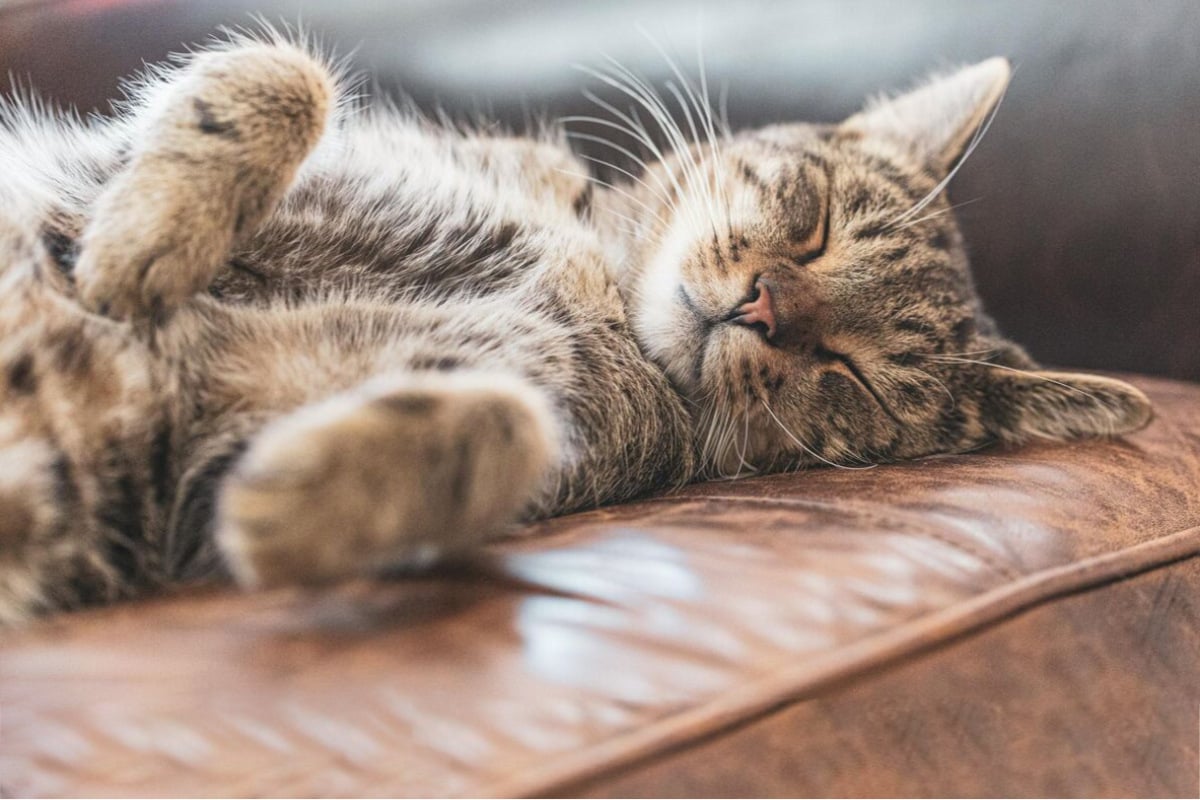Table Of Content

Usually, this is a momentary issue with the certain position that they are in. If your cat has an infection, your veterinarian may prescribe antibiotics, medicine to clear mucus, or medicine to help open the airways. Treatment will depend on whether the infection is caused by bacteria or a virus. So, make sure to keep a watchful eye on your cat’s health condition and behavior. Another cause may be blockages in the nasal canal, such as polyps or tumors. Even foreign objects stuck in the nasal cavity, like a blade of grass, can cause snoring.
Why does my cat make noises when she sleeps?
Snoring caused by underlying health problems can be treated by dealing with the root cause and with the help of your vet. If you see your cat doing this, contacting your vet immediately should be on top of your to-do list. Overall, if your cat is playful, happy, has a healthy appetite, and her snoring isn’t anything new, try not to be too concerned.
Vet Tips: Pets & Spring FAQs
“This could indicate a tooth root abscess, which can be very painful and needs medical intervention,” she says. Kornreich says cat parents should look out for signs like nasal discharge and coughing, which may be signs of a more serious problem. Even symptoms that might not seem like symptoms—like a change in meow—could signify a problem.
How to Prevent Snoring in Cats
As a cat owner, it’s important to keep a close eye on your furry friend’s health and wellbeing. While it’s common for cats to snore from time to time, excessive or abnormal snoring patterns can be a sign of a more serious issue. Here are some things to keep in mind when it comes to your cat’s snoring. Obese cats are more prone to snoring, as carrying extra weight can put pressure on their airways and make it more difficult to breathe while sleeping.
Metronidazole for Cats: Our Vet Explains the Dosage, Uses & Side Effects
Alexandra worked in mixed practices across the UK and Australia, treating creatures great and small. An expert in nutrition and behavior, she is now a senior veterinarian for a predominantly companion animal practice in the top of the South Island of New Zealand. Try incorporating playtime into your cat’s daily routine by providing toys and interactive games. You can also encourage your cat to climb and explore by setting up a cat tree or other climbing structures. Cats are notoriously picky eaters, but if your cat is on a hunger strikeopens in a new tab, check with your vet to see what might be going on. Sign up for product updates, offers, and learn more about The Wildest, and other Mars Petcare brands.
Once your veterinarian has identified the underlying cause of your cat’s snoring, they will work with you to develop a treatment plan. Treatment options may include medications, surgery, or lifestyle changes, depending on the underlying cause of your cat’s snoring. If your cat’s snoring is a new symptom or has suddenly become worse, it is important to take your cat to the veterinarian.
When in doubt, it’s never a bad idea to have a vet check over your cat to look for reasons your cat is snoring now when they didn’t before. Brachycephalic (flat-faced) cat breeds like Himalayans and Persians are more prone to snoring due to the structure of their face. With their entire nasal cavity inside their skull, they are more likely to have their soft palate or other tissue blocking their airway. While snoring in cats isn’t quite as common as it is in canines, it is still normal. That said, a snoring cat could be doing so because of an underlying medical issue. So, it’s important to know when cat snoring is normal and when you should be concerned.
Do you ever find yourself awake at night, listening to your cat snore away? While it may seem cute and harmless, cat snoring can actually be a sign of an underlying health issue. Once your veterinarian identifies the underlying issue that’s causing your cat’s snoring, there are several solutions and remedies that can alleviate and even eliminate the problem. To diagnose the underlying health issues that are causing your cat’s snoring, your veterinarian may conduct diagnostic tests like X-rays, CT scans, and blood tests. These tests can help identify any respiratory or structural abnormalities that could be contributing to your cat’s snoring. If your cat’s snoring is caused by dental problems, your veterinarian may recommend a dental cleaning or other dental treatments.
The Weirdest Products of CES 2024 - CNET
The Weirdest Products of CES 2024.
Posted: Fri, 12 Jan 2024 08:00:00 GMT [source]
Common Causes of Cat Snoring

Cats can experience allergies that cause inflammation and blockage in their nasal passages. This can lead to snoring as they struggle to breathe through their nose. Additionally, respiratory problems like asthma and infections can also lead to snoring. As a cat owner, you may have noticed your furry friend making snoring sounds in their sleep, and you may wonder why they do so. Although cats are known for being quiet animals, snoring is a common issue among them. In this article, we’ll explore the causes and potential health concerns of cat snoring, as well as the solutions and remedies that can help alleviate this problem.
If your cat is overweight and snoring, try to encourage more exercise and a healthier diet in order to help them lose weight and alleviate the issue. Some cat breeds are more prone to snoring due to their facial structure. Brachycephalic or ‘flat-faced’ breeds like Persians, Himalayans, and Exotic Shorthairs are more likely to experience respiratory issues, including snoring, due to their short snouts. Additionally, overweight cats with extra fat around their throat can also experience snoring.
Whether it’s a wand toy, a laser pointer, a cat wheel, or something else, find a form of exercise that your cat enjoys and encourage them to do it every day. Cats are very good at hiding their symptoms when they don’t feel good. Your cat may be seriously ill, but you won’t notice any symptoms until it’s nearly too late. That’s why it’s crucial to take your cat to the vet at least once a year.

Whether it requires lifestyle changes or medical interventions, addressing any underlying health conditions can help reduce snoring. The most common upper respiratory infection in cats is commonly known as “cat flu,” which is a mushroom term for upper airway issues caused by a number of common infectious agents. In addition to weight management, it’s important to ensure that your cat is getting the proper nutrients and vitamins they need to stay healthy. A balanced diet can help reduce inflammation and improve respiratory function, which can help alleviate snoring. Talk to your veterinarian about the best diet options for your cat based on their age, weight, and overall health.
Signs typically start quite suddenly, and cats can snort or sneeze to try and rid themselves of the blockage, as well as snore or breathe noisily. A trip to the vet to rule this out is the only option in these cases. Sleep apnea is a rare condition in cats, but it can lead to complications if left untreated. Signs of sleep apnea in cats include snoring that is accompanied by periods of silence, gasping for breath, and restlessness while sleeping.
If you notice your cat snoring frequently or loudly, it’s essential to consult your veterinarian for an examination and diagnosis. In conclusion, keeping a watchful eye on your feline friend’s snoring patterns is essential for their overall health and well-being. While some degree of snoring may be normal for certain cat breeds, excessive or loud snoring could be a red flag for underlying health issues. Cats can also experience snoring due to allergies or respiratory issues. Overweight cats have extra fat tissue around their throat, which can cause their airways to narrow, leading to snoring.
Loud snoring can be a sign of an obstruction in the airway, which can lead to serious health problems if left untreated. Cats are known for their interesting sleeping habits, from sleeping in the weirdest positions to getting into REM sleep while twitching and purring. In fact, snoring is a common occurrence that affects cats of all ages and breeds.

No comments:
Post a Comment